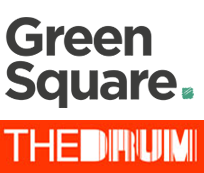5th February 2013
First off this week, I wanted to throw a thought out there, prompted by the sad news last week that HMV, the sole remaining High Street music and DVD chain, had gone into administration.
This a blow to the multi-billion pound music biz, which is still one of the UK’s biggest export industries, and one of the few endeavours where we can say we are at least on a par with our American cousins.
HMV’s travails offer a real opportunity for someone. Many music biz types saw it as their in-house marketing agency, in the same way that some magazine publishers use WHSmith. Interestingly, at the time of writing, HMV’s administrators had received over 50 enquiries for the stricken chain. I am not surprised. A slimmed-down HMV which offers a broad and deep range of music and film (particularly for buff and specialist shoppers); and which offers an amazing customer experience (great-looking stores with a real sense of theatre that celebrate music and movies and peopled by enthusiastic and knowledgeable staff) would still be the best marketing opportunity the music and film industries could ever have.One only has to look at Apple’s retail outlets. They are not just shops, they are Apple’s real-world marketing arm – and in this respect they are hugely successful. If it is to survive on the High Street, HMV must in a sense become a marketing agency. Perhaps, a decade hence, this is what we’ll see. As I said, it’s a sad, but potentially hugely significant development – it’ll be fascinating to see how this one pans out.
Back to business, the year is of course still too young for us to detect any meaningful trends, but, as we hinted last year, mobile and data have been providing the buzz these past couple of weeks. This week’s big acquisition was by mobile ad network InMobi, which bought UK-based mobile data analytics technology provider Overlay Media for an undisclosed sum. Under the terms of the agreement, the Overlay Media team will be based at InMobi’s EMEA headquarters in London.
A global company founded and headquartered in India, InMobi has been on a bit of an acquisition spree over the past few months – this latest deal follows on from its recent acquisitions of London-based app management and distribution specialist Metaflow Solutions and San Francisco’s MMTG Labs, creator of the Facebook marketplace AppBistro.
Overlay Media is best known as a developer of mobile data analytics technologies. Its flagship product, the Context Engine, was built in order to deliver more personalised content to mobile users.
It’s a very good fit with InMobi. Overlay is a very “techy” operation – most of its staff are data analysts and scientists, whereas the acquirer has a lot of marketing nous and global muscle; and InMobi gets another specialist skill set to add to its portfolio. One of the things that will make or break mobile as a marketing channel will be the quality of experience it can offer; if we all start receiving spam or irrelevant marketing messages, the channel will fail, and those messages relevant to the recipient will get lost.
However with Overlay’s technical skills and experience, InMobi has the opportunity to steal a march on rival mobile ad networks by being able to offer clients more personalised, more immersive messages. InMobi is a very interesting operator – one that we’ll be hearing much, much more of in the coming months and years, I think. It’s operating in a lively part of the Indian market: there were about 910 million mobiles in use in India by the end of 2012 – giving a market penetration of just 75% (compared to the UK’s 123% or Hong Kong’s 188%) so there’s plenty of growth potential. Mobile advertising in India is underdeveloped compared to other economies – currently it accounts for just under 10% of all digital spend – but it’s now starting to gain traction. And, according to a report by The Times of India last month, by 2015, 75% of all Indians will use a mobile device to access the internet.
India, too, is a fascinating market – not as hyped or quite as large as China, obviously, but in many ways more dynamic and with more potential. More importantly generally, India is a more open (and arguably entrepreneurial) society than China, and is a better cultural fit with the West – and of course English, the lingua franca of business, is a first or second language in much of India.
We’re used to Indian firms snapping up UK manufacturing outfits – such as Jaguar Land Rover – but not so much Indian marketing services companies buying up UK, European or North American agencies. This may change soon.
The Indian scene has long been dominated by Western giants – O&M, McCann, Leo Burnett, etc. – but “home grown” operations like InMobi are starting to build global scale.
Given that the entire Indian ad industry accounts for less than 0.4% of GDP (compared to over 2.3% for the US) and, according to various sources, that it’s growing between 10% and 17% (consistent figures seem quite hard to come by in India!) each year, the potential is huge: India has 18% of the world’s population but only 0.7% of the global ad market, a strong economy and some very ambitious entrepreneurs.
It’s a way off yet, but I wouldn’t be surprised to see an Indian operation one day becoming a Dentsu-esque giant, with a massive domestic market and international ambitions, and outmuscling some of our own groups in the acquisitions market.
